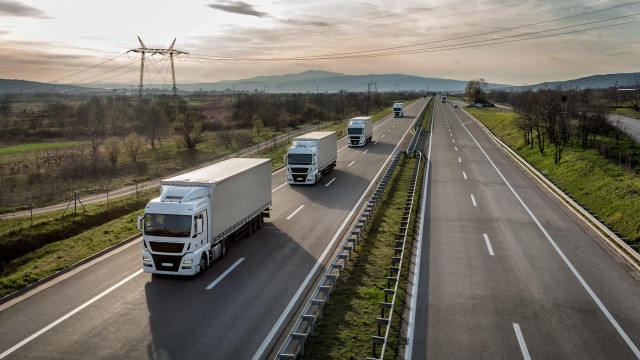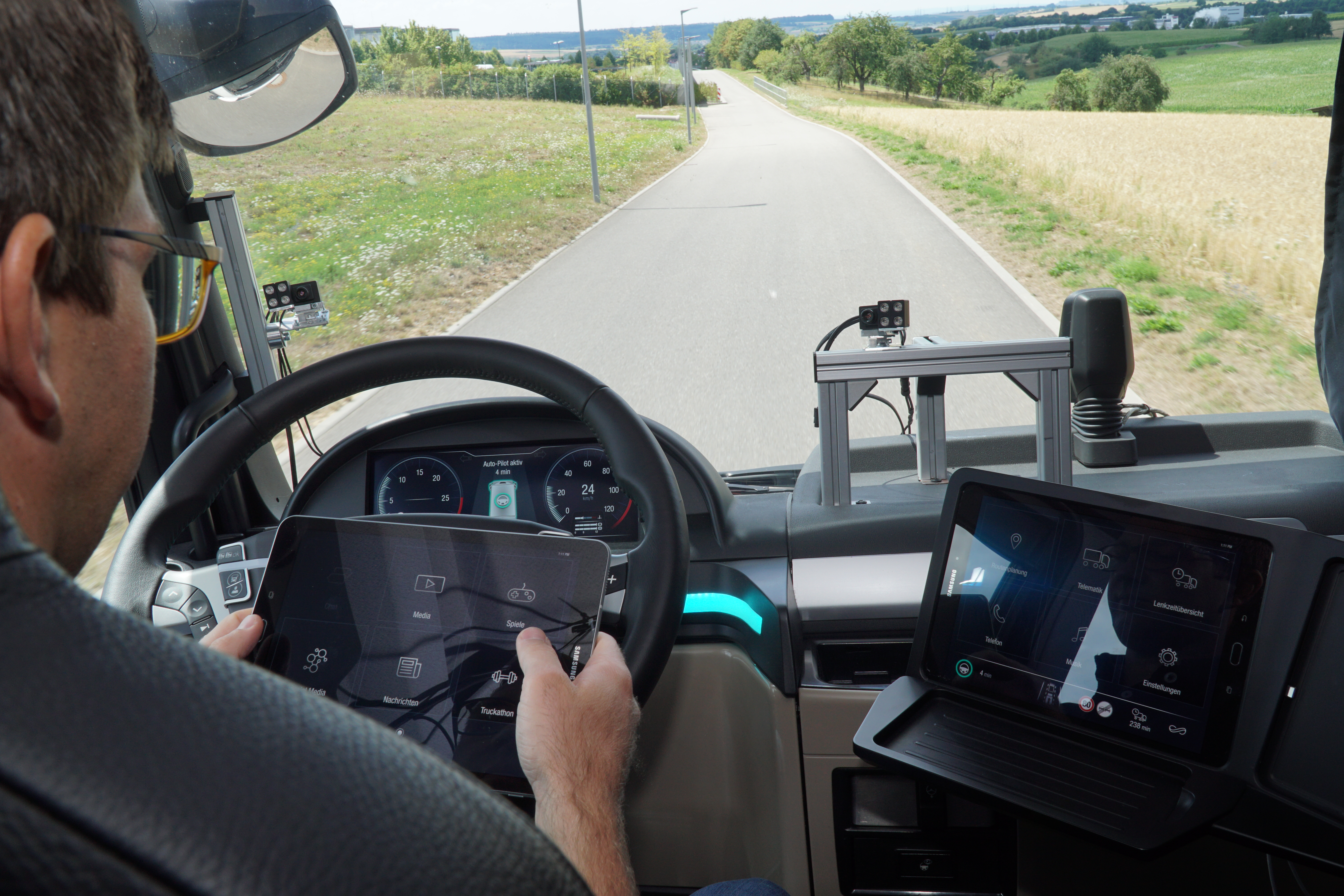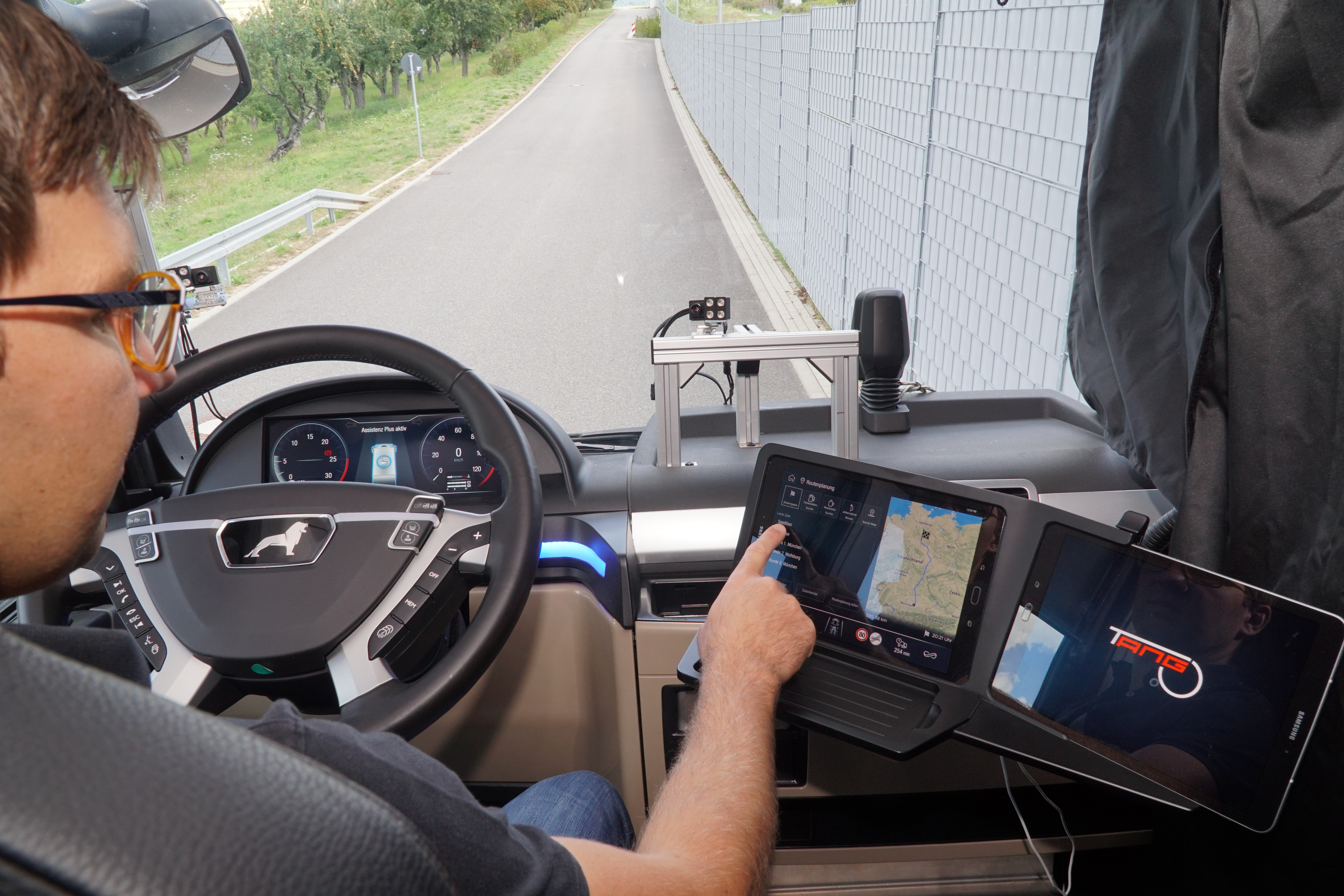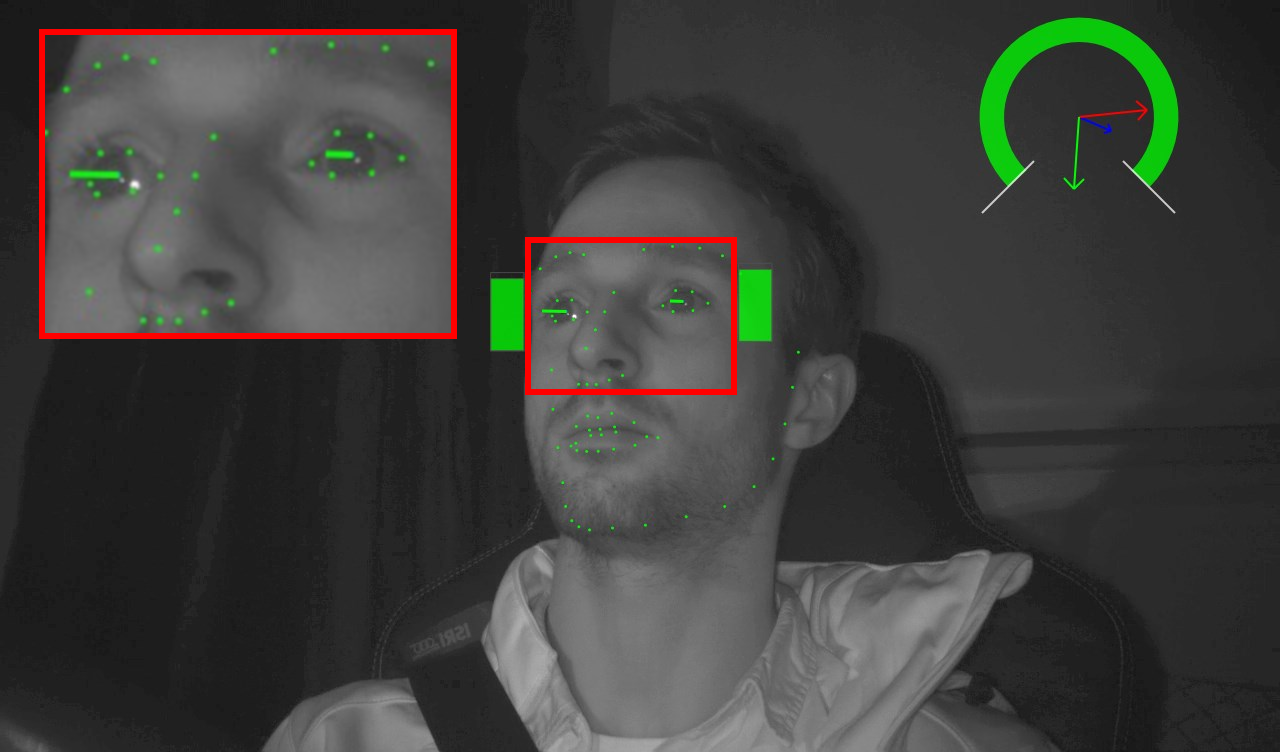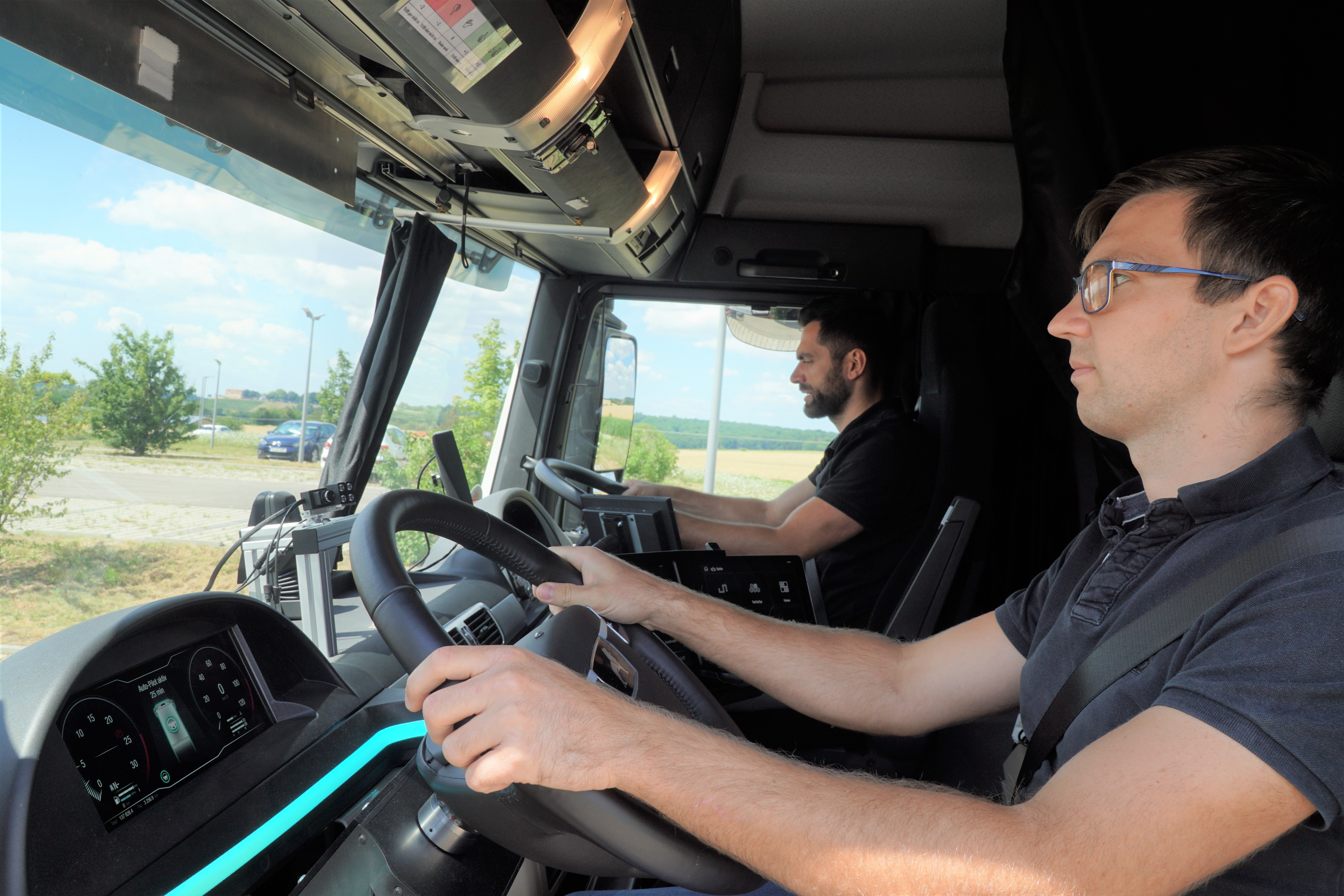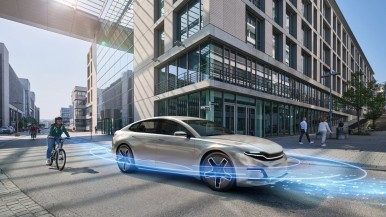Stuttgart, Germany – Trucks are the mainstay of logistics. In Germany, three-quarters of all goods are transported by road. Time pressure, long working hours, and monotonous convoys are part and parcel of the truck driver’s everyday routine. If the driver is distracted, overtired, or reacts too slowly, the consequences can be disastrous. Automated driving functions are key to avoiding accidents and dangerous situations. They alert drivers and support them in critical situations, and are increasingly in a position to assume monotonous and fatiguing tasks. At the same time, people remain irreplaceable even at subsequent levels of automation: they must be able to take control if necessary. What is the ideal way to coordinate the interaction between vehicle and driver? This was the focus of the TANGO project over the past three and a half years. TANGO stands for “Technologie für automatisiertes Fahren, die nutzergerecht optimiert wird” in German. Its English equivalent is “Technology for automated driving, optimized to the benefit of the user.”
Additional information:
Project website with the findings: www.projekt-tango-trucks.com
Project partners:
Robert Bosch GmbH (consortium leader)
Volkswagen AG
MAN Truck & Bus SE
University of Stuttgart, Institute for Engineering Design and Industrial Design
Hochschule der Medien, Stuttgart
Spiegel Institut Mannheim GmbH & Co. KG
CanControls GmbH
Mobility is the largest Bosch Group business sector. It generated sales of 55.8 billion euros in 2024, and thus contributed around 62 percent of total sales. This makes the Bosch Group one of the leading mobility suppliers. Bosch Mobility pursues a vision of mobility that is safe, sustainable, and exciting. For its customers, the outcome is integrated mobility solutions. The business sector’s main areas of activity are electrification, software and services, semiconductors and sensors, vehicle computers, advanced driver assistance systems, systems for vehicle dynamics control, repair-shop concepts, as well as technology and services for the automotive aftermarket and fleets. Bosch is synonymous with important automotive innovations, such as electronic engine management, the ESP anti-skid system, and common-rail diesel technology.
The Bosch Group is a leading global supplier of technology and services. It employs roughly 412,000 associates worldwide (as of December 31, 2025). According to preliminary figures, the company generated sales of 91 billion euros in 2025. Its operations are divided into four business sectors: Mobility, Industrial Technology, Consumer Goods, and Energy and Building Technology. With its business activities, the company aims to use technology to help shape universal trends such as automation, electrification, digitalization, connectivity, and an orientation to sustainability. In this context, Bosch’s broad diversification across regions and industries strengthens its innovativeness and robustness. Bosch uses its proven expertise in sensor technology, software, and services to offer customers cross-domain solutions from a single source. It also applies its expertise in connectivity and artificial intelligence in order to develop and manufacture user-friendly, sustainable products. With technology that is “Invented for life,” Bosch wants to help improve quality of life and conserve natural resources. The Bosch Group comprises Robert Bosch GmbH and its roughly 490 subsidiary and regional companies in over 60 countries. Including sales and service partners, Bosch’s global manufacturing, engineering, and sales network covers nearly every country in the world. Bosch’s innovative strength is key to the company’s further development. At 136 locations across the globe, Bosch employs some 82,000 associates in research and development.
Additional information is available online at www.bosch.com, www.bosch-press.com.
